“
Ezwetti is
not a temporary project launched for self-satisfaction, it is a lifetime
project created to serve others in a way that preserves their dignity,” said founder
of Ezwetti restaurant and of this individual, non-profit initiative launched in
2015.
اضافة اعلان
The aim was
to establish a social restaurant that seeks to achieve social and economic
solidarity among Jordanians.
Nabulsi, in
his mid-30s, is an activist who works in the field of social development. He worked
with several local and international organizations, and is now executive
advisor for Athar Al-Khair Holding Group, a Saudi organization working in
Indonesia, Tanzania and Qalqilya.
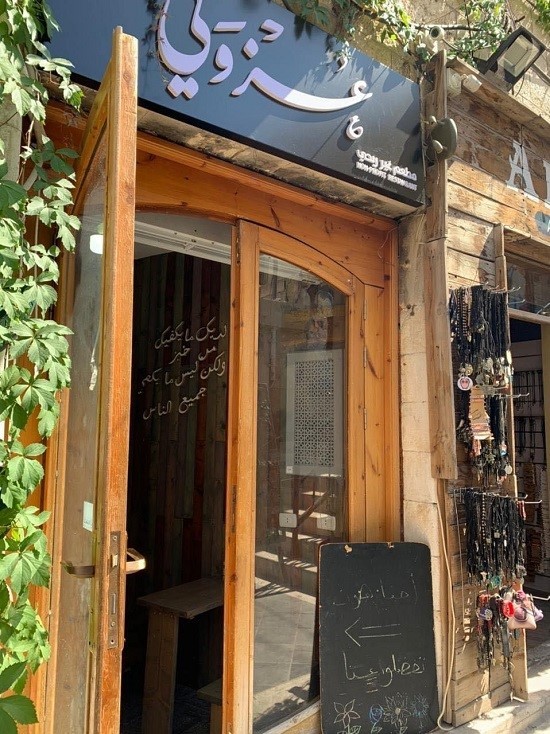 (Photo: Handout from Ezwetti)
(Photo: Handout from Ezwetti)
Ezwetti is a
restaurant that offers free food to those in need. At the restaurant, one can
be either an inviter or an invitee, “as we do not refer to people as poor or
rich” said Nabulsi.
If one is
the inviter, that person has the choice to buy a meal for him/herself and a
meal for another person who may need a meal; the paid-for meal takes the form
of an invitation pinned as a coupon on the “wall of kindness”. When the
beneficiaries come, they take the coupon discretely, in a way that preserves
their dignity, and get the meal.
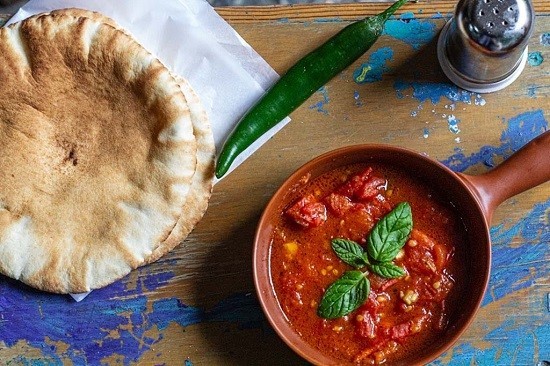 (Photo: Handout from Ezwetti)
(Photo: Handout from Ezwetti)
The
restaurant works entirely with volunteers, since it is a non-profit restaurant.
The money the inviter pays is meant to only cover the restaurant’s expenses in
terms of water, electricity, rent, and materials used for meals. According to
one volunteer who spoke to Jordan News, the meal prices start at 30 piasters and
goes as high as JD1.
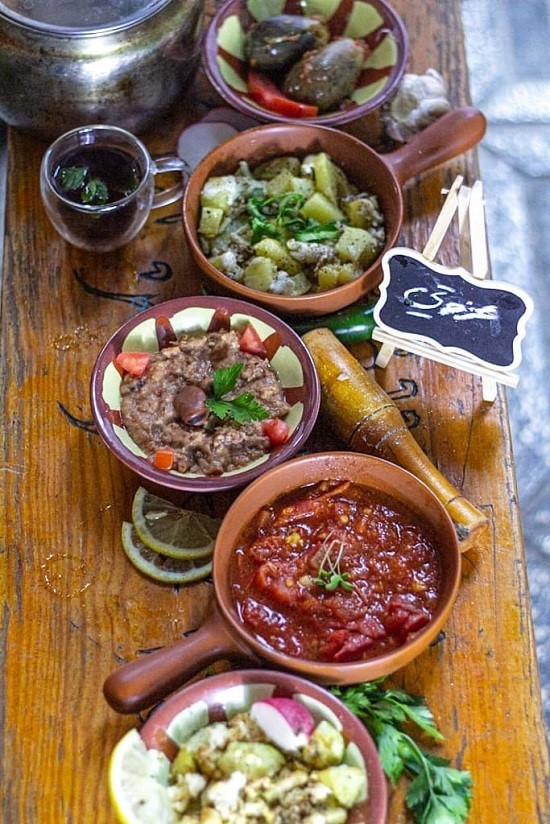 (Photo: Handout from Ezwetti)
(Photo: Handout from Ezwetti)
Nabulsi said
that 40 young men and women from different backgrounds – students, workers,
foreigners, and Arabs – volunteer to work at the restaurant. They come to
volunteer at least once a week, and do everything: bring vegetables and other
ingredients, prepare meals, serve food, and clean the restaurant.
According to the volunteer interviewed,
the restaurant serves local home-prepared food such as mufarakeh, makdous, labaneh,
cheese, eggs, and tahini. In addition, koshary, mujadara, and bulgur are served
once a week, on Mondays, as only one volunteer knows how to cook these.
Nabulsi said
that in the process of purchasing ingredients, the
aim is to support needy women by buying their products such as labaneh, cheese,
makdous, and olives, which are usually natural and use no preservatives, but
they may be also bought from local shops and malls.
The restaurant does not serve meat
and chicken, to keep prices down for volunteers.
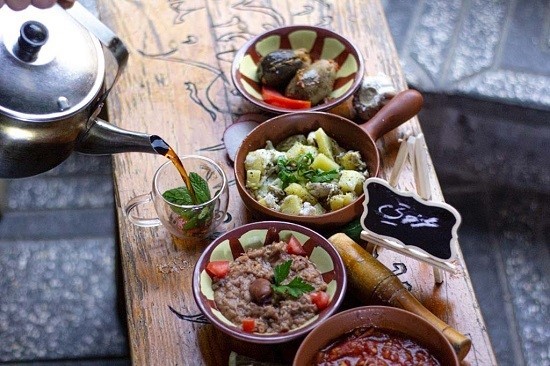 (Photo: Handout from Ezwetti)
(Photo: Handout from Ezwetti)
Before the
COVID-19 pandemic, the restaurant meals were served only to old people from downtown,
but during the pandemic, the number of unemployed and day laborers increased,
so they are also being served at the restaurant, which means that both adults
and children in need are now among the beneficiaries.
Nabulsi said
that from 2015 until now, some 25,000 meals were served; an average of
80 to 100 meals daily.
The restaurant is located on the
oldest Amman staircase, known as Al Kalha, which connects downtown Amman to
Jabal Al Weibdeh. The reason
for choosing this location, said Nabulsi, is its proximity to the heart of the
city and the affordable rents in the area
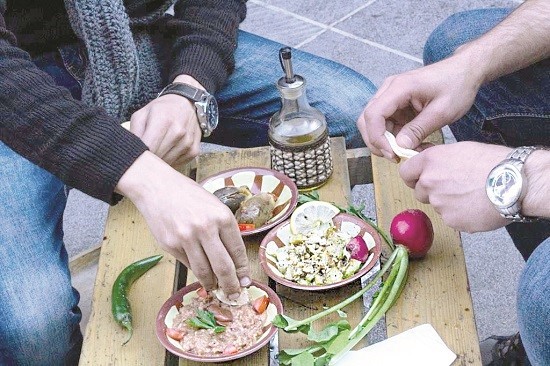 (Photo: Handout from Ezwetti)
(Photo: Handout from Ezwetti)
Nabulsi said that when he first opened Ezwetti, the area was empty, but because of
it, the place has now become a cultural hub, with
Jadal and Zizfon, two cafés
that gather well-educated Jordanians for cultural meetings and events next door.
Nabulsi said he launched Ezwetti with the
desire to make it the work of a lifetime, not a temporary experiment, which is
often the case with charity volunteer work.
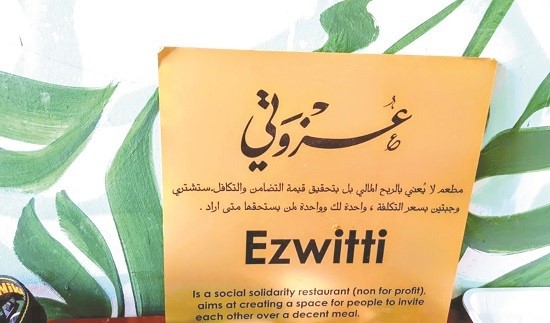 (Photo: Handout from Ezwetti)
(Photo: Handout from Ezwetti)
“The second factor [that prompted
him to open the restaurant] is that I am from a generous family, which influenced me since
childhood; I remember one day I saw a homeless person sitting at a restaurant,
so I tried to help him and to bring him food, but he refused, so I left a dinar
for him, but I did not feel comfortable thinking about who would help him in
the coming days. This is where the idea of the restaurant, and its name, came from:
the desire to help others and stand by the needy.”
Read more Good food






